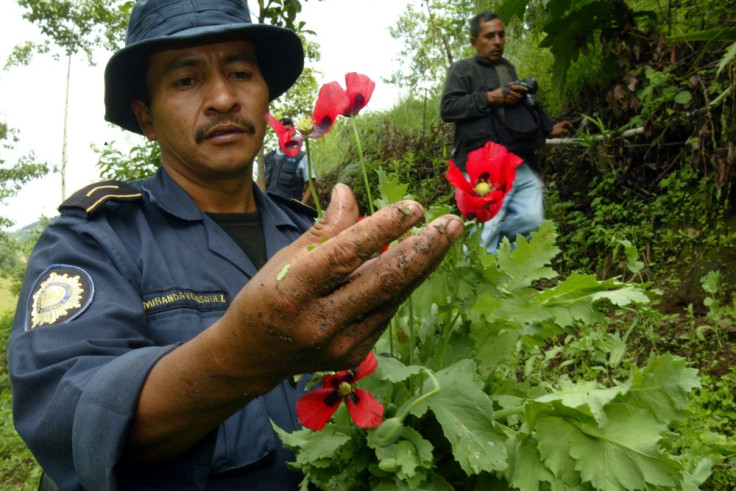War on Drugs: Guatemala to Consider Legalising Opium Production

Guatemala is to consider legalising and regulating opium poppy production in a potentially landmark move in Latin America's war on drugs.
Guatemalan President Otto Perez Molina and members of his government have stated this week that they are considering the legalisation of opium production in areas where its production is already rife.
"We started exploring the capacity that we could have for controlled planting," said Perez Molina.
"What that means is that we would know exactly what extensions are being planted, what the production would be and that the sale would also be well controlled, especially for medicinal use."
Mauricio Lopez, Guatemala's Interior Minister, declared that the government was considering both regulated legal cultivation and alternative development, defined by the United Nations drug agency as "giving farmers an economically viable, legal alternative to growing opium poppy."
"There are two paths, one is cultivated substitutes, and the other is the alternative which is controlled cultivation," Lopez said.
"This is what is already being done in other countries such as India and China, that is to say identifying hectares clearly, seeing how they are grown, carrying out the harvest, taking control of the commercialisation and above all making sure this serves mainly the pharmaceutical industry."
Lopez also lauded the Guatemalan security forces' 25 years of experience dealing with the war on opium production.
President Perez Molina has been one of the leading advocates for a reassessment of the global drug war and especially in Latin America.
The consideration of these proposals comes just weeks after Uruguay voted to legalise marijuana, becoming the first country to do so in the process.
© Copyright IBTimes 2025. All rights reserved.




















